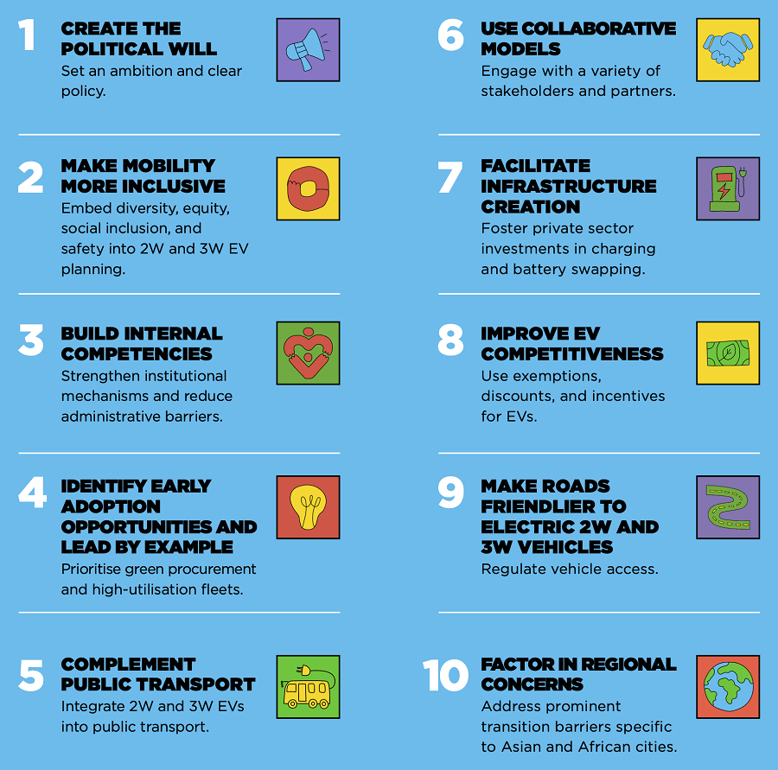Vehicle electrification and management guide for African and Asian cities
Development of a city guide for 2-wheeler (2W) and 3-wheeler (3W) vehicle electrification and management that provides best practices and recommendations for target cities in Africa and Asia.
"Cities have a key role to play in furthering the transition to electric, well managed 2Ws and 3Ws. The guide aims to provide Asian and African city officials with policy pathways to make this a reality, including best practices, case studies, and recommendations that will inspire leadership. We thank Ricardo’s team for partnering with C40 to highlight insights into 2W and 3W electrification and management through this report." Catherine Ittner, Senior Programme Manager - Zero Emission Freight, C40 Cities
Challenge
The personal or commercial vehicle market in some Asian and African cities is dominated by 2W and 3W vehicles, unlike typical four-wheel cars or vans in high per capita income countries. 90% of 2W and 3W vehicles worldwide are sold in Asia and Africa. In most cities, 2W and 3W vehicles are emission-intensive, inefficiently managed, not integrated with public transport and are inadequately recognised in transport planning. As such, 2W and 3W vehicle management and transition to low emission technology (i.e., electrification) is an urgent challenge.
78 of the world’s 100 most polluted cities are in South Asia, Southeast Asia, and Africa. Cities and subnational governments have a key role to play in enabling the transition of 2W and 3W electrification and efficient vehicle management. A gradual transition in the next few years would mean an unplanned influx of hundreds of millions of additional fossil fuel-powered 2W and 3W vehicles on Asian and African roads for the lifetime of these vehicles.
C40 Cities is a global network of nearly 100 mayors of the world’s leading cities that are united in action to confront the climate crisis and create a future where everyone, everywhere can thrive. C40 commissioned Ricardo to develop guiding pathways and best practice advice for cities to play a more proactive role in accelerating this transition.
Approach
As part of the study, Ricardo conducted research and stakeholder engagement across different cities in Asia and Africa to understand the current challenges in 2W and 3W vehicle management and electrification. The team shortlisted best practice case studies from different cities that deployed innovative solutions to challenges related to managing and electrifying 2W and 3W vehicles. These were case studies from New Delhi (South Asia), Jakarta (Southeast Asia), Dar es Salaam (Africa) and Nairobi (Africa). This work culminated in the development of ten concrete actionable recommendations for city officials to implement locally.

Result
The vehicle electrification and management guide developed by Ricardo outlined ten guiding pathways and four diverse case studies, offering cities practical guidance on how to approach efficient vehicle management in an urban setting and a successful transition to low emission technology. It also showcased leadership of progressive cities of 2W and 3W vehicle electrification and management. The guide provides an essential resource for cities looking to improve transport management and initiate their transition to electrify in a way that reflects the needs of local stakeholders.
The guide is available in four languages – English, Spanish, Bahasa Indonesian and Vietnamese.
Download city guide for two and three wheeler management and electrification



